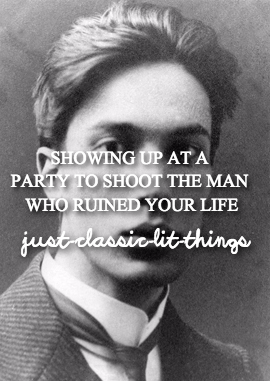#russian literature
“My idea of the real screen actor is someone capable of accepting whatever rules of the game are put to him, easily and naturally, with no sign of strain; to remain spontaneous in his reactions to any improvised situation. I am not interested in working with any other kind of actor, for he will never play anything beyond more or less simplified commonplaces. In this connection, what a brilliant actor the late Anatoly Solonitsyn was, and how I miss him now… Anatoly Solonitsyn was a born film actor, highly strung and suggestible. It was so easy to infect him with emotions, to achieve the right mood.”
― Andrei Tarkovsky, from “Sculpting in Time: The Great Russian Filmmaker Discusses His Art.”
“Why do people go to the cinema? What takes them into a darkened room where, for two hours, they watch the play of shadows on a sheet? The search for entertainment? The need for a kind of drug? All over the world there are, indeed, entertainment firms and organizations which exploit cinema and television and spectacles of many other kinds. Our starting point, however, should not be there, but in the essential principles of cinema, which have to do with the human need to master and know the world. I think that what a person normally goes to the cinema for is time: for time lost or spent or not yet had. He goes there for living experience; for cinema, like no other art, widens, enhances and concentrates a person’s experience—and not only enhances it but makes it longer, significantly longer. That is the power of cinema: ‘stars’, story-lines and entertainment have nothing to do with it. […] I see it as my duty to stimulate reflection on what is essentially human and eternal in each individual soul, and which all too often a person will pass by, even though his fate lies in his hands. He is too busy chasing after phantoms and bowing down to idols. In the end everything can be reduced to the one simple element which is all a person can count upon in his existence: the capacity to love. That element can grow within the soul to become the supreme factor which determines the meaning of a person’s life. My function is to make whoever sees my films aware of his need to love and to give his love, and aware that beauty is summoning him.”
— Andrei Tarkovsky, from “Sculpting in Time: The Great Russian Filmmaker Discusses His Art”
“It is not possible to catch the moment at which the positive goes over into its opposite, or when the negative starts moving towards the positive. Infinity is germane, inherent in the very structure of the image. In practice, however, a person invariably prefers one thing to another, selects, seeks out his [or her] own, sets a work of art in the context of his [or her] personal experience. And since everybody has certain tendencies in what he [or she] does, and asserts his [or her] own truth in great things as in small, as he adapts art to his [or her] daily needs he [or she] will interpret an artistic image to his [or her] own ‘advantage’. He [or She] sets a work into the context of his life and hedges it about with his aphorisms; for masterpieces are ambivalent and allow for widely differing interpretations.”
― Andrei Tarkovsky, from “Sculpting in Time: The Great Russian Filmmaker Discusses His Art”, tr. Kitty Hunter-Blair.
“The function of the image, as Gogol said, is to express life itself, not ideas or arguments about life. It does not signify life or symbolise it, but embodies it, expressing its uniqueness.”
― Andrei Tarkovsky, from “Sculpting in Time: The Great Russian Filmmaker Discusses His Art”, tr. Kitty Hunter-Blair.
“Artists are divided into those who create their own inner world, and those who recreate reality. I undoubtedly belong to the first–but that actually alters nothing: my inner world may be of interest to some, others will be left cold or even irritated by it; the point is that the inner world created by cinematic means always has to be taken as reality, as it were objectively established in the immediacy of the recorded moment.”
― Andrei Tarkovsky, from “Sculpting in Time: The Great Russian Filmmaker Discusses His Art”, tr. Kitty Hunter-Blair.
“We wrap our feelings up in words, try to express in words sorrow and joy and any sort of emotion, the very things that can’t in fact be expressed. Romeo uttered beautiful words to Juliet, vivid, expressive words, but they surely didn’t say even half of what made his heart feel as if it was ready to jump out of his chest, and stopped him breathing, and made Juliet forget everything except her love?
There’s another kind of language, another form of communication: by means of feeling, and images. That is the contact that stops people being separated from each other, that brings down barriers. Will, feeling, emotion–these remove obstacles from between people who otherwise stand on opposite sides of mirror, on opposite sides of a door…”
― Andrei Tarkovsky, from “Sculpting in Time: The Great Russian Filmmaker Discusses His Art”, tr. Kitty Hunter-Blair.
“What is art? […] Like a declaration of love: the consciousness of our dependence on each other. A confession. An unconscious act that none the less reflects the true meaning of life—love and sacrifice.”
― Andrei Tarkovsky, from “Sculpting in Time: The Great Russian Filmmaker Discusses His Art”, tr. Kitty Hunter-Blair.
“Clearly the hardest thing for the working artist is to create his [or her] own conception and follow it, unafraid of the strictures it imposes, however rigid these may be. It is far easier to be eclectic, to follow the routine patterns which abound […]. But there is a danger here of becoming hopelessly entangled. I see it as the clearest evidence of genius when an artist follows his conception, his idea, his principle, so unswervingly that he has this truth of his constantly in his control, never letting go of it even for the sake of his own enjoyment of his work.”
― Andrei Tarkovsky, from “Sculpting in Time: The Great Russian Filmmaker Discusses His Art”, tr. Kitty Hunter-Blair.
“In order to be free you simply have to be so, without asking permission of anybody. You have to have your own hypothesis about what you are called to do, and follow it, not giving in to circumstances or complying with them. But that sort of freedom demands powerful inner resources, a high degree of self-awareness, a consciousness of your responsibility to yourself and therefore to other people.”
― Andrei Tarkovsky, from “Sculpting in Time: The Great Russian Filmmaker Discusses His Art”, tr. Kitty Hunter-Blair.
When Victor Hugo said To love another person is to see the face of God, and Dostoevsky said To love someone means to see them as God intended them and The more you succeed in loving, the more you’ll be convinced at the existence of God and the immortality of your soul.
Thoughts on: The Idiot
Thoughts on: The Idiot
“It wasn’t the New World that mattered…Columbus died almost without seeing it; and not really knowing what he had discovered. It’s life that matters, nothing but life — the process of discovering, the everlasting and perpetual process, not the discovery itself, at all.”
The Idiot is one of Dostoyevsky’s most tragic novels I’ve read so far. While in Crime and Punishment we observe the…


“The man who lies to himself can be more easily offended than anyone else. You know it is sometimes very pleasant to take offense, isn’t it? A man may know that nobody has insulted him, but that he has invented the insult for himself, has lied and exaggerated to make it picturesque, has caught at a word and made a mountain out of a molehill–he knows that himself, yet he will be the first to take offense, and will revel in his resentment till he feels great pleasure in it.”
―Fyodor Dostoevsky, The Brothers Karamazov
Fyodor Dostoyevsky - Фёдор Достоевский
Very interesting video ;)
“Sorrow, my friend, lurks even in gilded places. You can’t escape from it anywhere.”
-Fyodor Dostoevsky, The Double

What do you mean by ‘more honorable’? I don’t understand such expressions to describe human activity. ‘More honorable’, ‘nobler’ - all those old fashioned prejudices which I reject. Everything which is of useto mankind is honorable. I can only understand one word: useful! You snigger as much as you like, but that’s so!
- Fyodor Dostoevsky, Crime and Punishment








